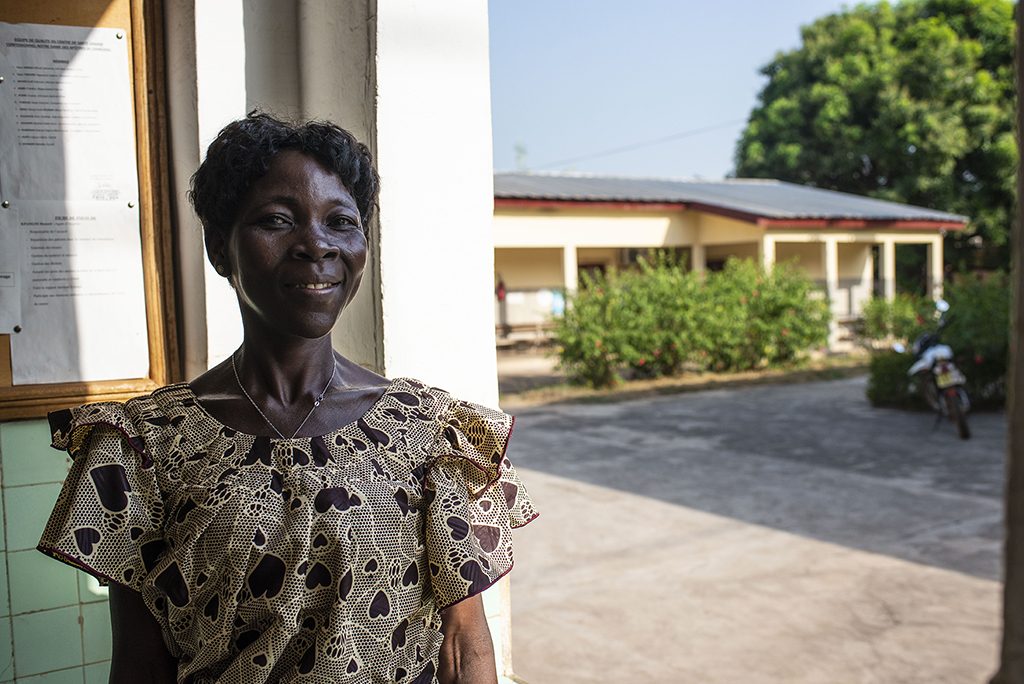
Photo: Monique Jaques/Jhpiego
When Amoin Agnès Akou learned she was HIV-positive, she worried—to the point of considering suicide—that people would find out.
Even as she sought treatment, she kept her HIV status secret. Until recently.
“My three grown-up children do not know I am HIV-positive,” she divulged during a health club meeting at the Centre de Santé Urbain Confessionnel (CSUC) Hospital in Dimbokro, Central Côte d’Ivoire. “I can’t tell them.”
The fact that Agnès could confide in 17 strangers attending the meeting shows that even the most intractable stigma—one that prevents many from seeking lifesaving antiretroviral therapy (ART)—responds to empathy and evidence, which underpin an integrated, comprehensive client-focused primary health care project in central and southwest Côte d’Ivoire.
It was about eight years ago that Aya Angèle Koffi, 37, was diagnosed with HIV, widely considered a curse in her country.
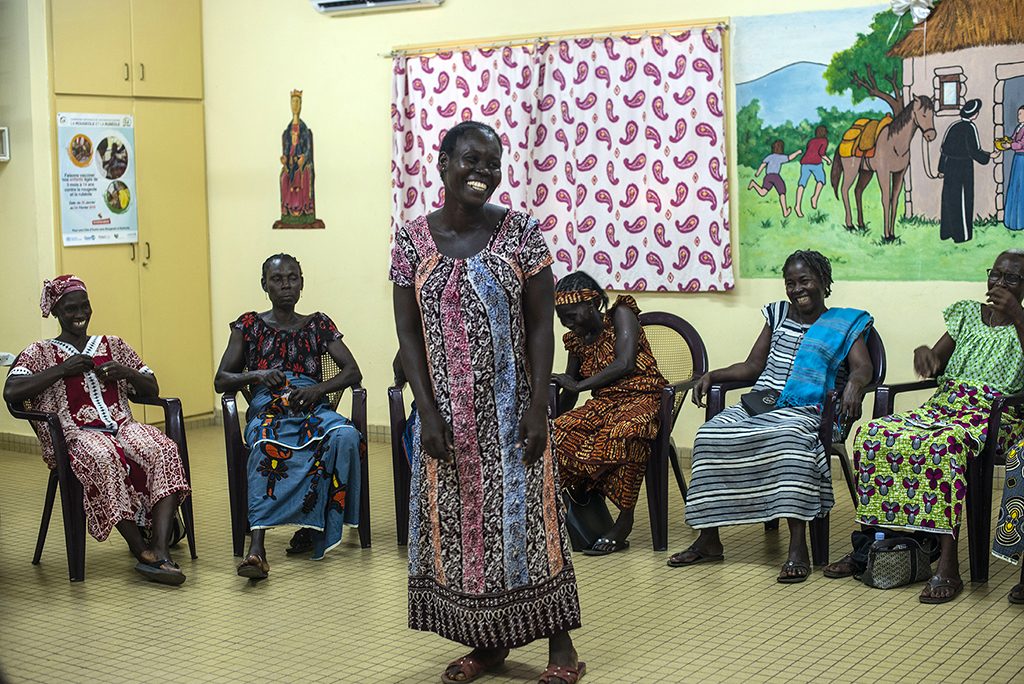
Photo: Monique Jaques/Jhpiego
“None of my relatives want to see or be near me again,” Angèle said.
She is hardly alone. Nor is she isolated.
“When I am at the [health] club, I am home,” she added. “This is my family.”
Health clubs like the one that Agnès and Angèle attend aim to empower clients with essential information, medicine and services, allowing for a strong, member-focused sustainable approach that is community-owned. In the N’zi-Iffou-Moronou and Gboklé-Nawa-San-Pedro health regions, clubs invite clients with HIV, tuberculosis (TB), diabetes and hypertension to learn more about their conditions from health providers, counselors and community health workers.
And also, importantly, from each other.
Angèle, for instance, is a proud and healthy outlier in this country, which has the highest HIV prevalence (2.7%) in Western Africa. She has never missed taking her antiretrovirals (ARVs) or making it to a clinic appointment. Many of the 500,000 people diagnosed with HIV in Côte d’Ivoire still are not on ART, despite government efforts and progress over the past decade in fighting the epidemic. In addition to high rates of clients dropping out of treatment, those on medication often don’t adhere to the daily regimen.
When Agnès met Angèle and others in the club who were HIV-positive—and saw they were surviving and thriving—she was encouraged.
“I realized that I can also be well, just like them,” she reasoned.
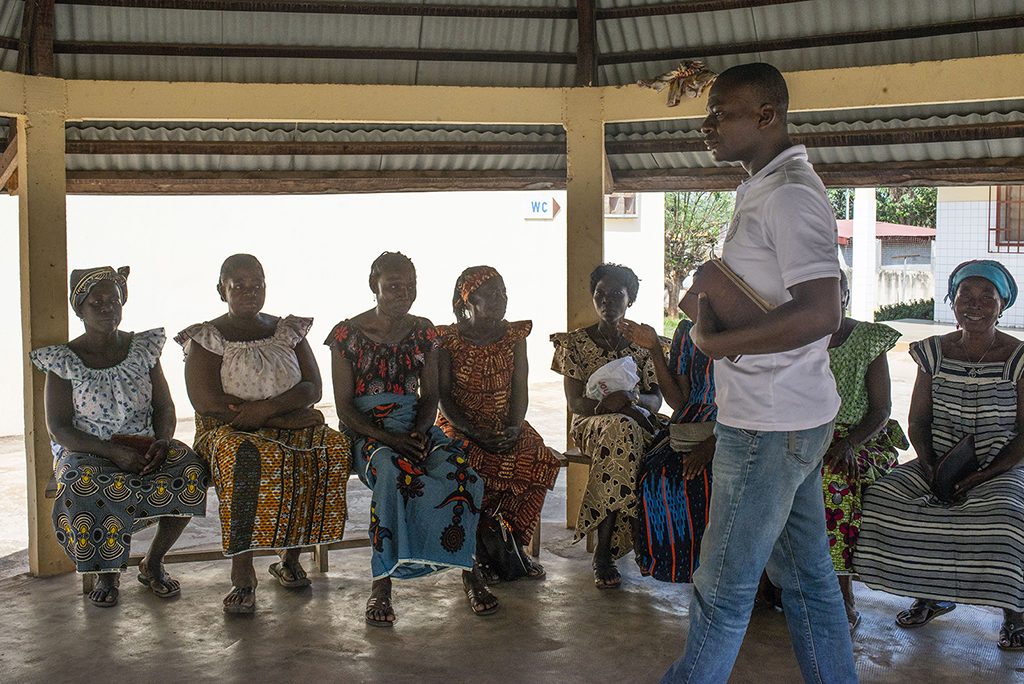
Photo: Monique Jaques/Jhpiego
HIV is the leading cause of death among adult males here, and the second leading cause of death among women. The traditional strategy of segregating HIV care to standalone treatment centers wasn’t working.
The health clubs are part of a new effort—the Chronic Care Model Project—that aims to increase HIV patients’ acceptance and linkage to ART care, retention and adherence. It’s supported by the U.S. President’s Emergency Plan for AIDS Relief, Centers for Disease Control and Prevention and Jhpiego—a nurse-led nonprofit—in collaboration with Côte d’Ivoire’s Ministry for Health and Public Hygiene. Co-designed by national and local stakeholders, with close supervision by regional and district health management teams, the Jhpiego-led project helped the CSUC Hospital in Dimbokro and 43 other health facilities to restructure service delivery.
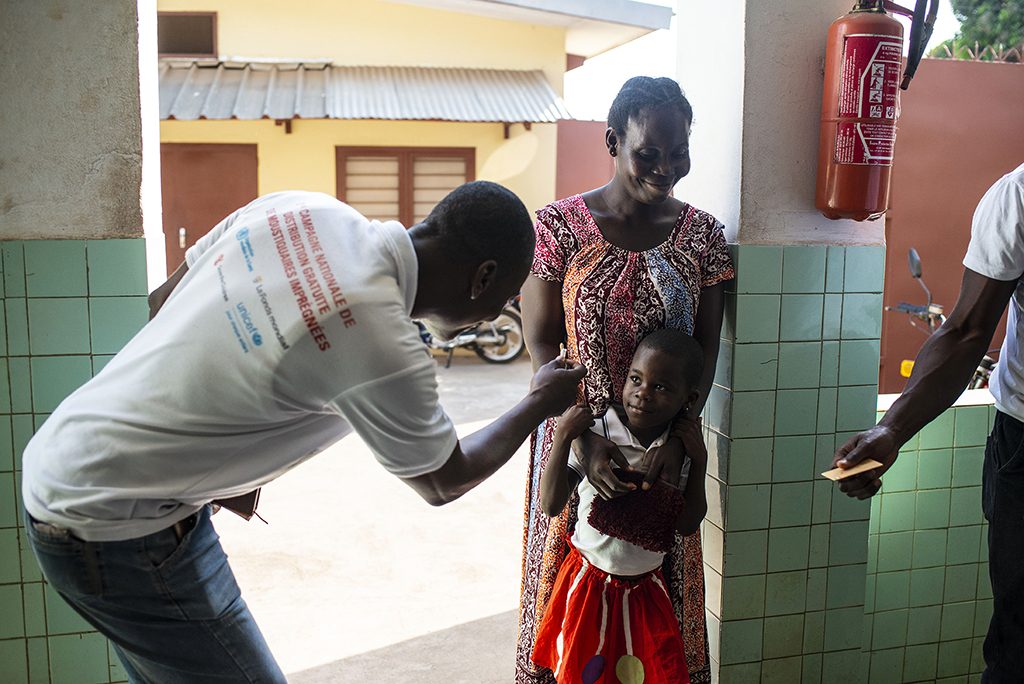
Photo: Monique Jaques/Jhpiego
Now, almost four dozen health facilities are diagnosing and treating HIV along with offering services targeting a host of other chronic diseases.
To ensure that providers acquired all the necessary skills, the project helped midwives and nurses to learn how to competently and confidently offer comprehensives services, a key pillar in primary health care delivery. They learned how to deliver care for patients with TB, hypertension and diabetes as well as how to initiate ART regimens, monitor side effects and refer cases to physicians at higher-level facilities.
“Things [have] changed,” observed Kouakou Kouassi Seraphin, a nurse at CSUC in Dimbokro. “The [client] testimonies [during club meetings] are inspiring a lot of people who thought they were the only ones on lifelong medication.”
To further serve clients like Agnès, the project enlisted community health workers and trained them to bring friendly HIV and chronic care services closer to people who need them. Kouadio Konan, 48, oversees 92 clients in his village of Tano-Akakro in Djangokro where he organizes at least two health club meetings per month.
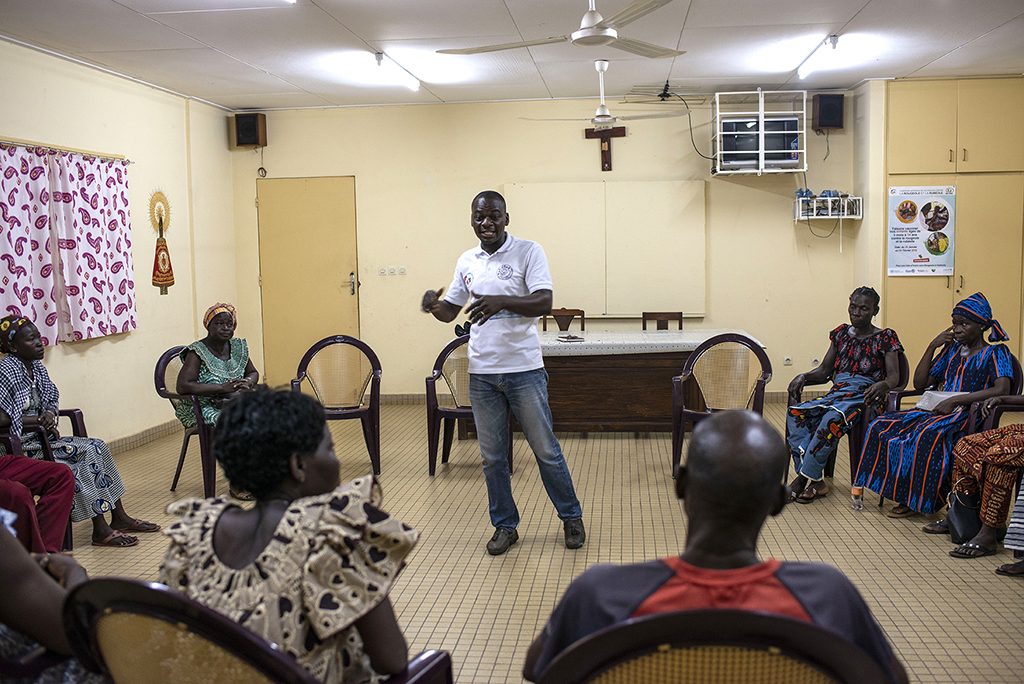
Photo: Monique Jaques/Jhpiego
In addition to maintaining a detailed register of his clients and their medications, Konan counts remaining pills during home visits to check adherence. That’s how he noticed that Loukou Kouamé, 65, wasn’t taking his ARVs.
“I had given up,” Loukou said. “Thanks to community health workers and the club [at the health center in Djangokoro] I am [now] doing well.”
As Agnès Akou listened, she envisioned the day when she would tell her children that she is living with HIV. And they would accept her, just as if she had diabetes or TB.
She began to have hope.
Charles Wanga is Jhpiego’s senior communications specialist for the Africa Region.




